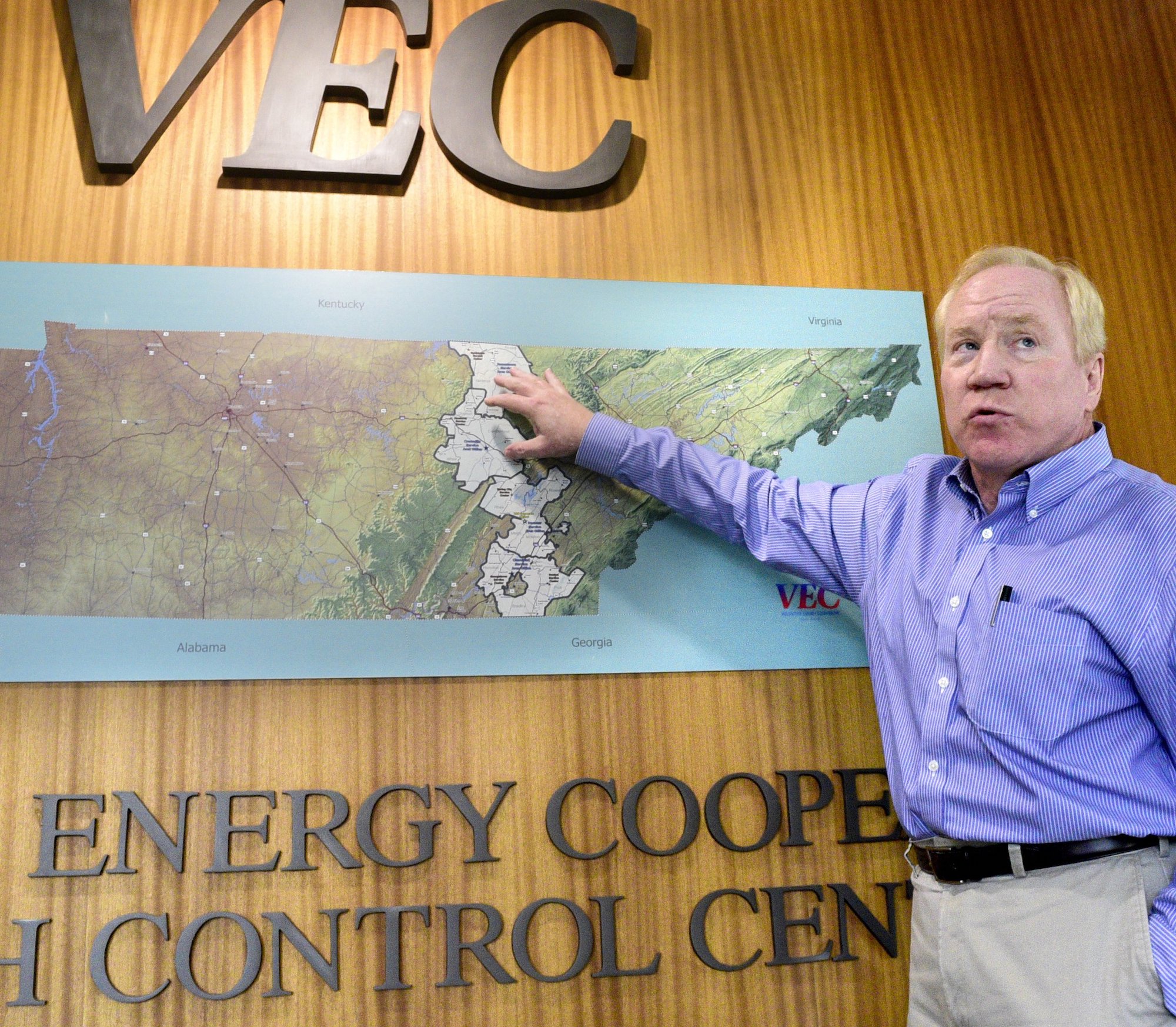Tennessee's attorney general claims an effort by local power companies to try to bring cheaper power to their customers along Tennessee Valley Authority transmission lines will hurt most of the state's electricity users by shifting costs and reducing power reliability.
Although the state of Tennessee has no regulatory role over the federally owned TVA, the state's top legal officer is asking the Federal Energy Regulatory Commission (FERC) to block a motion by four TVA distributors to go elsewhere for their power supplies.
Volunteer Energy Cooperative, Athens Utilities and two other TVA distributors are asking FERC to order TVA to carry power from other utilities and power producers along TVA's transmission lines to deliver what the four local utilities claim will be cheaper electricity than what TVA now provides.
In an 11-page brief filed with FERC, Tennessee's attorney general contends that "granting the petition (to use TVA transmission lines to wheel outside power into the Valley) would create unnecessary risks of significant harm to TVA and the citizens TVA serves" and "may significantly disrupt the health of TVA."
The federal utility bundles both its power generation and transmission into a single delivered price to provide electricity to nearly 10 million people across TVA's 7-state service territory. The attorney general acknowledged that "Tennessee historically has had a limited role in defining electricity public policy in the state," but the state decided to intervene "in light of the evolving developments resulting from the electricity crisis in Texas" that left more than 3 million persons in the dark in February.
"If FERC approves the petition, other local power companies on the TVA system may reconsider their long-term relationship to TVA," said Sara Hiestand, senior assistant attorney general in the state's Office of Attorney General. "Reduced aggregate TVA revenues may shift the burden of cost recovery."
The attorney general's motion echoes similar claims made in filings by TVA and the primary trade group for its distributors, the Tennessee Valley Public Power Association.
In a recent interview on the television talk show called Inside Tennessee, TVA CEO Jeff Lyash said opening up TVA's transmission lines to outside power suppliers would be unfair to most TVA customers.
"A small number of power companies want to evaluate leaving TVA and they want us to wheel power for them frankly without them shouldering their share of the costs," Lyash said. "That is what we object to."
But Rody Blevins, the president of Volunteer Energy Cooperative which is considering splitting with TVA, said the four local power companies that have filed the FERC application are willing to pay TVA for the cost of transmitting power. However, Blevins said the local power companies don't want to continue to pay higher wholesale rates for TVA's electricity than what the companies say they can get from other utilities and independent power producers. Blevins said other power suppliers could help cut Volunteer Energy rates by 25% to 30% below what it now charges by offering cheaper power than what TVA delivers.
"The bottom line is that if TVA would sit down with us and try to negotiate a reasonable contract with us, we're more than open to that," Blevins said Tuesday. "They refuse to negotiate on anything and now they are trying to block competition and keep our electricity rates higher than we believe they could be if we had the ability like nearly every other power utility in the country to wheel power across transmission lines to access cheaper power."
Blevins estimates Volunteer Electric could save up to $50 million a year by buying power from suppliers in the region other than TVA. Blevins said TVA, which is on pace to earn more than $1 billion this year for the fourth consecutive year, could reduce its energy prices right now by simply reducing its net income.
Stephen Smith, executive director of the Southern Alliance for Clean Energy which is backing the four local power companies in their possible split with TVA, also accused Lyash of "a series of mistruths" and misrepresenting that the four local power companies would not pay TVA for its costs of transmission.
FERC regulates transmission rates for transmitting power in most of the country, but in the TVA service territory, a so-called fence limits the ability of TVA to regularly sell power outside its service territory or other utilities from coming into the Valley to sell their power.
But Smith said the fence should be opened up. He said Lyash's claim that the four local power companies won't pay adequate wheeling costs should be rejected by FERC.
"The incident highlights the need for independent oversight of TVA so that customers are not harmed by the unregulated, federal monopoly treating fantasies as truth.," Smith said.
FERC has not set a date when it will decide on the TVA case.
Contact Dave Flessner at dflessner@timesfreepress.com or at 423-757-6340

